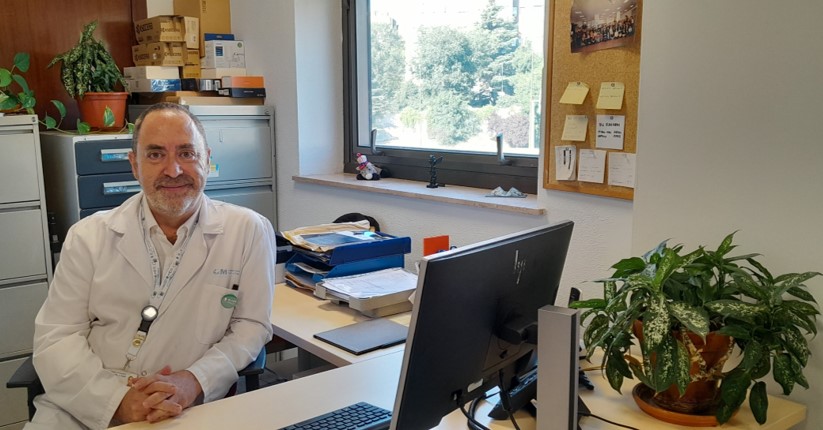Scientific Subdirectorate
Duties
- To support and respond to the scientific and management complexity of the Institute.
- To support the Directorate in its tasks, not only in management but also in the design of the scientific and organisational strategy of the IRYCIS.
Subdirectorate

Dr Víctor Manuel González Muñoz holds a degree in Biological Sciences and a PhD in Biochemistry and Molecular Biology from the Autonomous University of Madrid. He completed postdoctoral stays at the Severo Ochoa Molecular Biology Center (Madrid), the Comprehensive Cancer Center at the University of Michigan (USA), the University of Alcalá, and the National Biotechnology Center (Madrid).
In 2002, he joined the Ramón y Cajal University Hospital under a Miguel Servet contract, where he pioneered research on aptamers for diagnosis and treatment, a first in Spain. He has participated in over 40 research projects, acting as Principal Investigator (PI) in 22 of them, and collaborated on more than 20 projects with companies and other research groups. He has published 75 scientific articles, holds 8 patents, and has promoted and advised biotech spin-offs such as Bioapter SL, Aptus Biotech SL, and Aptatargets.
Notably, he has led the development of APTOLL, a therapeutic product created at IRYCIS for the treatment of ischemic stroke, which has successfully completed phase II clinical trials. In 2020, he initiated the Ibero-American Aptamer Network (REDIBA). He has supervised 10 doctoral theses and overseen 11 undergraduate or master's dissertations. He has delivered numerous training sessions and presented more than 90 communications at conferences.
At IRYCIS, Dr. González Muñoz is the lead researcher of the Aptamers Group (Area 4 of IRYCIS) and heads the Central Aptamer Support Unit. He is also a member of the Institute's reaccreditation working group, the Innovation Platform (ITEMAS) of the ISCIII, and the Researcher Support Group.
Dr. González Muñoz brings a strong academic background, extensive experience, and a highly interdisciplinary and collaborative scientific activity with various services at the Ramón y Cajal University Hospital and research groups at IRYCIS. These qualities provide him with the best attributes to understand and address the challenges facing the Institute's future.
